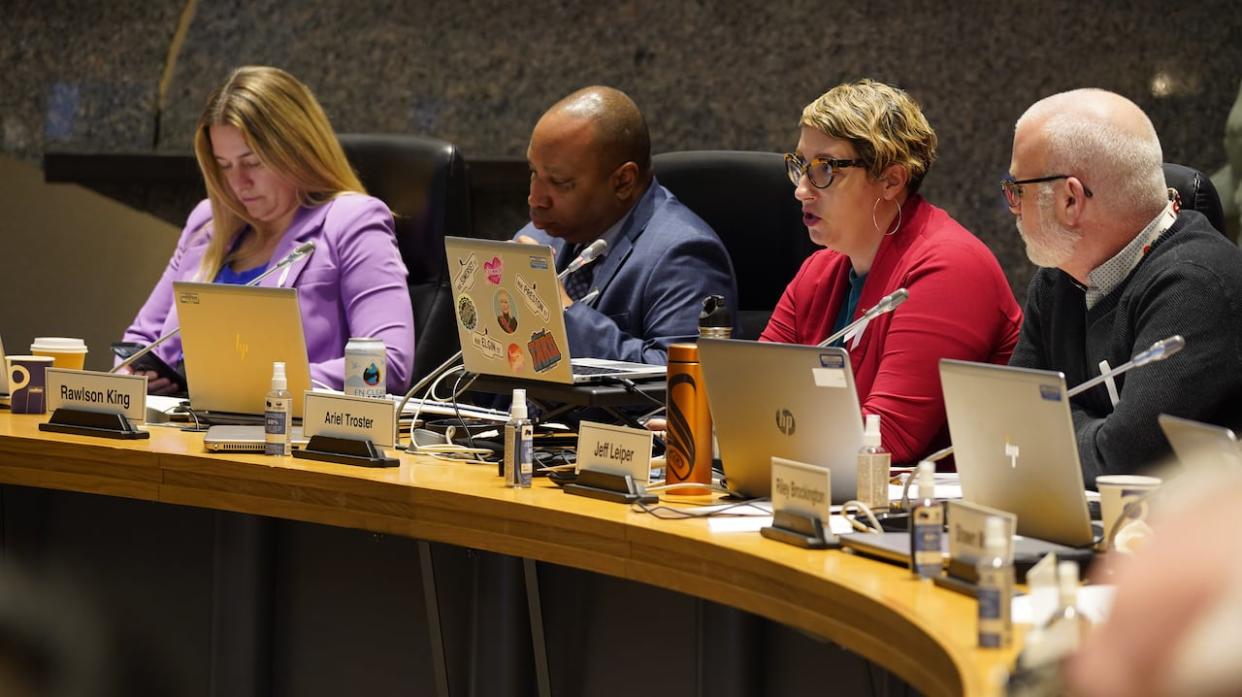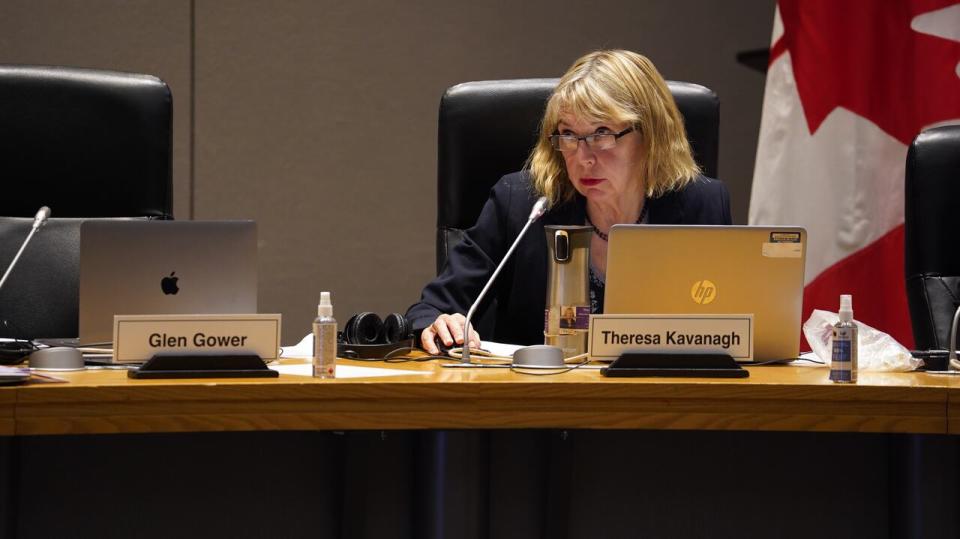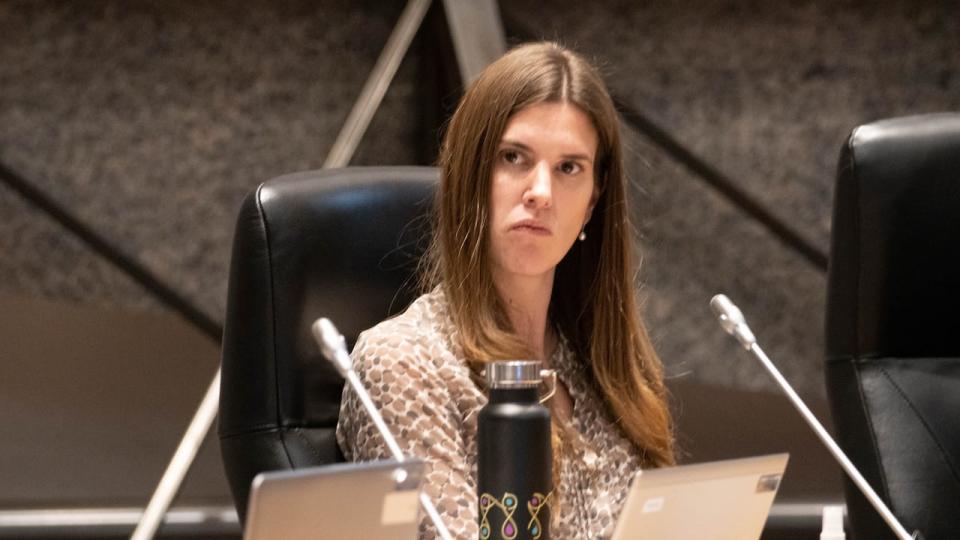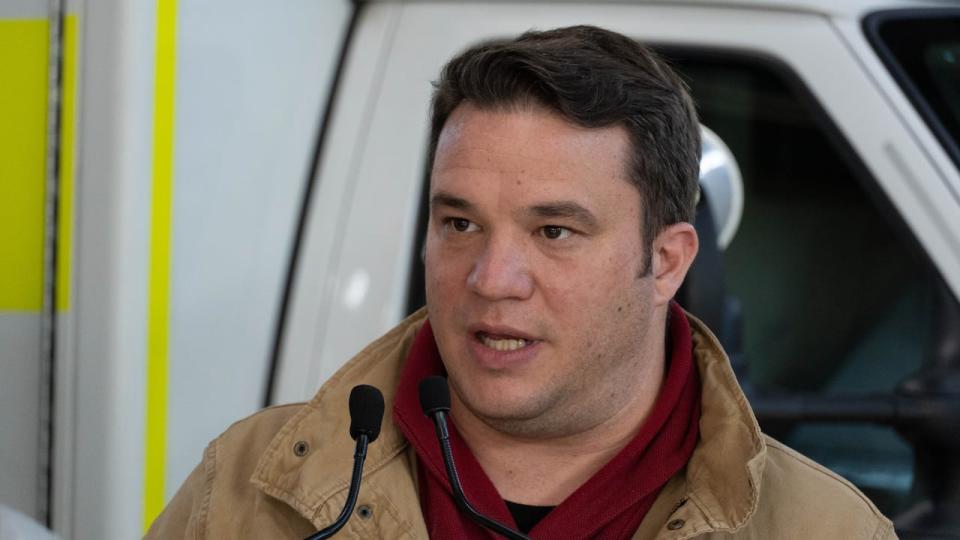City budget passes with more housing money but no transit fare freeze

Ottawa city councillors were united in boosting funding for affordable housing but voted down a transit fare freeze as they passed a $5.8-billion budget Wednesday.
Mayor Mark Sutcliffe said the 2024 budget takes a balanced approach that keeps taxes affordable without putting the city at financial risk. He said that's all the more important as he looks ahead to even tougher conditions in 2025.
"I should say it now, the 2025 budget will be an even bigger challenge, which is why it's important that we make very careful and strategic decisions with this budget and don't overspend or over-commit to any area," he said.
Only five councillors voted no on the final 2024 budget document, including one Orléans councillor who called it "insulting" to his ward.
Property taxes will rise by 2.5 per cent next year, enough to add $105 to the bill of the average urban homeowner. Fees for everything from recreation to garbage will also rise, while the average annual water bill will increase by $40.91.
The budget that passed Wednesday is almost identical to what staff first proposed a month ago, with one key exception.
Staff had initially proposed boosting capital spending to build affordable housing units from $15 million to $24 million. But councillors voted on Wednesday to push even further to $30 million.
A chance to 'do something big'
Bay ward Coun. Theresa Kavanagh, who also chairs the Ottawa Community Housing board, said the city is facing a housing crisis. She said there are about 1,800 units ready to build, but they lack funding.
"This is a chance for our council to do something big, something groundbreaking that the city has never done before," said Somerset Coun. Ariel Troster.
"This would show that we're ready to face the scope of the crisis in front of us, and that we're uncompromising in the belief that homelessness is a policy choice — a bad one that we need to end."

Bay ward Coun. Theresa Kavanagh proposed the motion to boost capital spending on affordable housing. (Francis Ferland/CBC)
Troster said her ward office, which represents much of downtown Ottawa, is dealing with multiple evictions every week.
The extra money to boost housing funding is coming from reserves.
Chief financial officer Cyril Rogers said he can live with using those savings as a one-time investment to speed up housing construction. He said the sooner council acts, the sooner the city can get out from under the housing crisis.
"When we are putting our hand into the cookie jar, we are not being naughty children," said Knoxdale-Merivale Coun. Sean Devine. "This is what the cookie jar is for."
The motion passed unanimously.
The vote came after a group of about 30 protesters showed up in front of city hall to demand even more money for affordable housing. Some held signs with slogans such as "housing is a human right."
Sam Hersh, coordinator of Horizon Ottawa, welcomed the added housing investment but said it should be at least $40 million.
"Does it go far enough? No, but it's a good start, and hopefully we can see each and every year this spend go up," Hersh said.
Transit fare freeze fails
Councillors also approved motions to lengthen the wading pool season and add 24 more porta-potties to parks, but they rejected an effort to freeze transit fares.
The freeze would have cost $3.8 million, and Gloucester-Southgate Coun. Jessica Bradley put forth a motion to pay for it by increasing the transit levy on property tax bills by one per cent. That would mean about $8 extra for the average homeowner.
Bradley noted that council voted to freeze fares in the 2023 budget to recognize all the reliability struggles that riders have endured.
"We're a year later and not much has changed," she said, adding that the transit system is facing a "bleak future."

Gloucester-Southgate Coun. Jessica Bradley at a meeting in November 2022. (Jean Delisle/CBC)
Sutcliffe argued that the lost fare revenue would compound over time and add up to $200 million over 30 years. But Bradley noted that her levy would make up all of that money, and city staff backed her up.
OC Transpo staff estimated that the fare freeze would attract an additional 300,000 rides across the system, and would add about $600,000, over and above the new revenue from the levy.
But transit services general manager Renée Amilcar said that reliability is vastly more important than fare costs in drawing riders onto the trains and buses.
Stittsville Coun. Glen Gower, who chairs the transit commission, noted that taxes already cover about 70 per cent of transit expenditures. He said he regrets voting to freeze fares last year, since it put OC Transpo further behind in revenue it needs.
"We're arguing really over a 10-cent adult fare," he said. "If we were to approve this motion, maybe it's a quick PR win today, but I don't think it makes a speck of difference to our riders.
"They want to see improved service, improved reliability, and that's what's going to have the long-term effect to bring back riders."
Orléans councillor sees 'nothing of true substance'
Bradley and Menard voted against the final budget, as did Devine and Kitchissippi Coun. Jeff Leiper. All had supported the transit fare freeze.
But Orléans East-Cumberland Coun. Matt Luloff voted against the budget for a different reason, saying it contains "nothing of true substance" for the city's east end.

Orléans East-Cumberland Coun. Matt Luloff called the budget 'insulting' and said it contains 'nothing of substance.' (Jean Delisle/CBC)
"It is insulting and I'm not prepared to put up a pantomime that everything is perfect and we're all going to sing Kumbaya while we invest in some regions and neglect others, while we allow streets in Orléans to crumble," he said.
Another Orléans councillor agreed that the suburb isn't getting enough support on transportation, but still voted for the budget in the end.
Luloff is currently the Conservative Party of Canada candidate for Orléans in the coming federal election.

 Yahoo News
Yahoo News 
